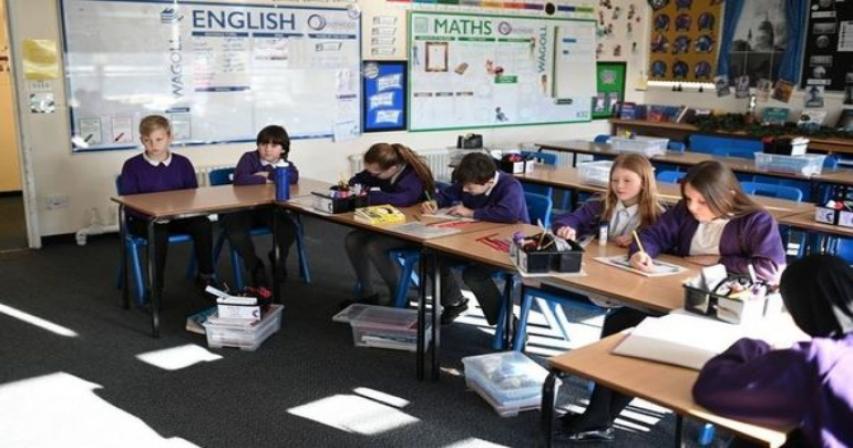Summer catch-up schools planned for pupils in England
- 4 years ago

Secondary schools in England will be asked to consider delivering face-to-face summer schools as part of efforts to help pupils catch up.
An extra £420m in funding has been announced, along with £300m announced for catch-up projects in January.
Prime Minister Boris Johnson said the money will help ensure "no child is left behind" due to the pandemic.
Teachers, experts and unions called the money a "good start" - but warned about overwhelming pupils and teachers.
The prime minister confirmed all pupils will return to classrooms from 8 March as part of the first step of a roadmap for easing England's lockdown.
National restrictions since last March have led many pupils to lose around half a school year in face-to-face learning, the government said.
Announcing the catch-up plans, Mr Johnson praised teachers and parents for a "heroic job with home schooling" but said the classroom was "the best place for our children to be".
Schools will have the option to run summer classes for pupils who need it most, potentially starting with those who will be moving up to Year 7 at secondary school this year.
But there are concerns about teachers burning out if they have to work through the holiday.
Education Secretary Gavin Williamson said the average primary school will receive around £6,000 extra funding, with the average secondary school getting around £22,000 extra in recovery premium payments.
Speaking on BBC Breakfast, he said it was up to head teachers to decide how to use the money - it could be used, for example to pay teachers for overtime to do extra teaching.
Review on masks
Mr Williamson also said the policy of secondary school pupils in England having to wear masks in classrooms would be reviewed over Easter.
"We're reviewing that at the Easter holidays to see if that has had a positive impact, and the impact that Public Health England would feel is right, or whether it's going to continue to be necessary."
He did not rule out that the policy could remain in place until 21 June, which is the final date in plans to ease lockdown.
The government's £720m education support package for England includes:
• A one-off £302m "recovery premium" for state primary and secondary schools to boost summer schooling, clubs and activities
• £200m to fund face-to-face secondary summer schools, with teachers in charge of deciding which pupils benefit
• An expanded national tutoring programme for primary and secondary pupils and an extended tuition fund for 16 to 19-year-olds - also worth £200m
• £18m funding to support early-years language development
The government considered a variety of options for pupils - including extended school days and shorter summer holidays - but neither of these proposals form part of the plan set out on Wednesday.
Alongside the newly-announced programme, online resources will continue over the summer through Oak National Academy.
Exams this year have already been cancelled in England, but Mr Williamson said more detail on how grades will be calculated is coming in the next few days.
'Teacher burnout'
Kate Green, Labour's shadow education secretary, said the funding was "not adequate and will not make up for the learning and time with friends that children have lost".
"There is no specific mention of supporting children's mental health or wellbeing, which is fundamental to enabling their recovery from this pandemic," she said.
Labour also calculated the new package was worth less than the £840m spent on the Eat Out to Help Out scheme last year, and would be worth 43p per pupil per day, if the money was split across a normal school year.
School leaders' unions welcomed the funding but warned of a long road ahead.
Paul Whiteman, general secretary of the NAHT - which represents head teachers - said summer schools "will be of value for some pupils but it will be important not to overwhelm students".
Sir Peter Lampl, founder and chairman of the educational charity the Sutton Trust, called the package of measures "a promising start", but said it was "good that schools will have flexibility" to decide how to spend the money.
"However, it's important to recognise the problem of teacher burnout that could be exacerbated by additional workload."
Source: BBC
Comments